-
Doctors
-
Specialities & Treatments
Centre of Excellence
Specialties
Treatments and Procedures
Hospitals & Directions HyderabadCARE Hospitals, Banjara Hills CARE Outpatient Centre, Banjara Hills CARE Hospitals, HITEC City CARE Hospitals, Nampally Gurunanak CARE Hospitals, Musheerabad CARE Hospitals Outpatient Centre, HITEC City CARE Hospitals, Malakpet
HyderabadCARE Hospitals, Banjara Hills CARE Outpatient Centre, Banjara Hills CARE Hospitals, HITEC City CARE Hospitals, Nampally Gurunanak CARE Hospitals, Musheerabad CARE Hospitals Outpatient Centre, HITEC City CARE Hospitals, Malakpet Raipur
Raipur
 Bhubaneswar
Bhubaneswar Visakhapatnam
Visakhapatnam
 Nagpur
Nagpur
 Indore
Indore
 Chh. Sambhajinagar
Chh. SambhajinagarClinics & Medical Centers
Book an AppointmentContact Us
Online Lab Reports
Book an Appointment
Consult Super-Specialist Doctors at CARE Hospitals

Paediatric Gastroenterology
Paediatric Gastroenterology
Paediatric Gastroenterology Treatment in Hyderabad
Constipation, reflux, vomiting, and more are some gastric diseases that your child can suffer from. For these, you should consult a paediatric gastroenterologist.
Paediatric Gastroenterologists specialise in treating several conditions and diseases in children. Here are a few of the diseases which demands a visit to the paediatric gastroenterologist:-
-
Lactose intolerance
-
Bleeding from the gastrointestinal tract
-
Complicated or severe gastroesophageal reflux disease (reflux or GERD)
-
Food allergies or intolerances
-
Inflammatory bowel disease
-
Liver disease
-
Short bowel syndrome
-
Acute or chronic abdominal pain
-
Chronic constipation
-
Vomiting
-
Severe or chronic diarrhea
-
Pancreatic insufficiency (including cystic fibrosis) and pancreatitis
-
Nutritional problems (including malnutrition, obesity, and failure to thrive)
-
Feeding disorders
Paediatric gastroenterologists undergo special training which enables them to perform specific diagnostic tests according to the digestive system of the children. Colonoscopy and esophagogastroduodenoscopy are some of the procedures that are performed expertly by paediatric gastroenterologists. Issues like swallowing issues, bleeding and other problems related to the intestine are also treated by paediatric gastroenterologists.
Paediatric gastroenterologists are generally extensively experienced and are experts in managing and treating any nutritional issues in children. Children, teens, and infants with liver diseases are also diagnosed and treated by paediatric gastroenterologists. Paediatric gastroenterologists are healthcare professionals who treat children right from birth up to their teenage years. Constipation, poor growth, vomiting, jaundice, reflux, diarrhoea, stomach ache are a few of the diseases which are treated by these medical professionals. Therefore, if your child is suffering from any of these diseases, you need to consult a paediatric gastroenterologist.
The Most Important Diseases Related to Paediatric Gastroenterology
- Constipation in Children- Constipation is a very common problem, more so in children. This is a disease whose symptoms are very well known among everyone. If a child faces a problem with defecation for a stretched period of time, then this might be a sure sign and symptom for constipation. Infrequent defecation, hard stools, large tools, difficulty in passing the stool, painful defecation, are all signs and symptoms of constipation. During weaning for infants, constipation might occur very frequently. It also occurs during school age or while potty training toddlers. Past medical history, food allergies, psychological disorders, and anatomical anomalies are some major contributing factors for Constipation.
- Poor Growth- Many children experience poor growth and this frequently becomes a serious matter of concern for the parents. In this condition, a child experiences a slower growth rate than other children of the same age and gender group. The growth refers to weight as well as the height of the child. Chronic infections, low birth weight, genetic problems, metabolism, problems, anaemia, and hormonal problems can be some of the major factors that affect the growth rate of a child. During a regular hospital visit, this condition can be generally diagnosed by your doctor. Most of the time, it is this way that the poor growth is caused in children chiefly due to certain nutritional deficiencies. For this reason, it is very important to have a balanced meal every part of the day. A well balanced diet will help in healthier growth. There are healthcare specialists who specialise in nutrition. It is always prudent to contact them if your child is undergoing poor growth. They will provide your child with a proper diet chart which will keep your child healthy and well.
- Jaundice- A medical condition which expresses itself chiefly in the form of yellowish skin is known as jaundice. Excessive bilirubin, if present in the blood, causes the skin, eyes, and mucous membranes in the mouth to turn yellow. This is the main sign of Jaundice. Jaundice might be an indication of a damaged liver in older children. This also may indicate any other infections or other ailments that cause damage to the liver. Immediate medical attention should be given to the children who suffer from Jaundice. Newborns are at greater risk of getting jaundice. This usually happens and disappears within the few initial days of life. The treatment for jaundice is mainly done based on the cause.
- Reflux- Reflux refers to the condition that causes the contents of your stomach to move back up your food pipe during or after a meal. This is something that not only occurs in babies and children but also occurs in adults. Reflux is not generally considered to be severely problematic. But sometimes, it can turn out to be problematic and cause poor weight gain, bleeding or inflammation of the food pipe, and respiratory troubles.
- Gastroenteritis- An infection to the guts or to the intestines that causes diarrhoea, vomiting, and abdominal pain is known as Gastroenteritis. Under normal conditions, this infection usually clears up within a few days. But just in case, if it does not clear up, you need to consult a doctor immediately. This is because a child’s body might get dehydrated very fast with continuous vomiting and abdominal pain. Gastro infections can be caused by viruses, bacteria, or microbes. Rotavirus is the most common virus that is known to cause gastroenteritis. Prevention of dehydration is the best approach to treat this disease. For this, the person suffering from this should be provided with sufficient fluids to prevent loss of fluids.
Surgery Options for Paediatric Gastroenterology
Surgical options in pediatric gastroenterology address a variety of gastrointestinal (GI) conditions in children. Here are some common surgeries and their purposes:
- Appendectomy
- Purpose: Removal of the appendix, usually due to acute appendicitis.
- Procedure: Can be performed as an open surgery or laparoscopically (minimally invasive).
- Hernia Repair
- Purpose: Correction of inguinal, umbilical, or other abdominal wall hernias.
- Procedure: Involves pushing the sticking-out tissue back into place and repairing the muscle wall defect.
- Pyloromyotomy
- Purpose: Treatment of pyloric stenosis, a condition that affects infants and causes severe vomiting.
- Procedure: Involves splitting the muscle of the pylorus to allow food to pass from the stomach to the small intestine.
- Intussusception Reduction
- Purpose: Treatment of intussusception, where part of the intestine telescopes into another section, causing obstruction.
- Procedure: Often performed non-surgically using an air or contrast enema, but surgery may be needed if these methods are unsuccessful.
- Laparoscopic Cholecystectomy
- Purpose: Removal of the gallbladder, typically due to gallstones causing pain or infection.
- Procedure: Performed laparoscopically through small incisions.
What type of issue does Paediatric Gastroenterology?
Pediatric gastroenterology deals with a wide range of gastrointestinal (GI) issues in infants, children, and adolescents. Here are the main types of issues managed in this speciality:
- Gastroesophageal Reflux Disease (GERD)
- Symptoms: Heartburn, vomiting, regurgitation, feeding difficulties, and poor weight gain.
- Management: Medications, dietary changes, and in severe cases, surgery (e.g., fundoplication).
- Inflammatory Bowel Disease (IBD)
- Conditions: Crohn’s disease and ulcerative colitis.
- Symptoms: Abdominal pain, diarrhea, rectal bleeding, weight loss, and growth delays.
- Management: Medications, nutritional support, and sometimes surgery.
- Celiac Disease
- Symptoms: Diarrhea, abdominal pain, bloating, fatigue, and growth problems.
- Management: Strict gluten-free diet.
- Irritable Bowel Syndrome (IBS)
- Symptoms: Abdominal pain, bloating, constipation, and diarrhea.
- Management: Dietary changes, stress management, and medications.
- Liver Diseases
- Conditions: Hepatitis, fatty liver disease, biliary atresia, and metabolic liver disorders.
- Symptoms: Jaundice, liver enlargement, fatigue, and poor growth.
- Management: Medications, nutritional support, and potentially liver transplantation.
- Pancreatic Disorders
- Conditions: Pancreatitis and cystic fibrosis-related pancreatic insufficiency.
- Symptoms: Abdominal pain, nausea, vomiting, and malabsorption.
- Management: Enzyme replacement therapy, dietary modifications, and medications.
How can CARE Hospitals Help?
Any disease related to children must be diagnosed and handled with care. Paediatric gastroenterologists are best suited to treat children who are suffering from these diseases.
The medical team at CARE Hospitals make sure that family-centred care is provided to the patients. The child’s care team generally works closely with the healthcare professionals to give the best treatments to the children. Each child is unique and should be provided a proper treatment plan according to their medical problems and history. The paediatricians at the CARE Hospital groups ensure that this is provided to every child who seeks medical care from them.
Our Doctors
-
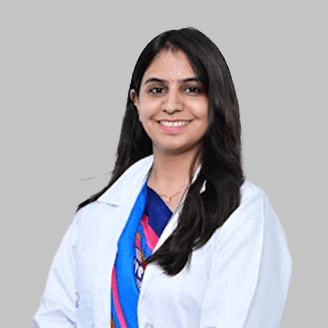
Dr. Simran Jain
MBBS,DNB (Paediatrics), MNAMS, DrNB (Paediatric Cardiology)
Cardiology, Paediatric Cardiology, Paediatrics
View More -
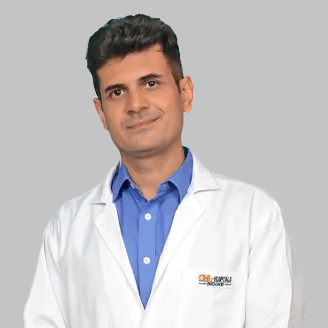
Dr. Manish Jain
MBBS, DCH
Paediatrics
View More -
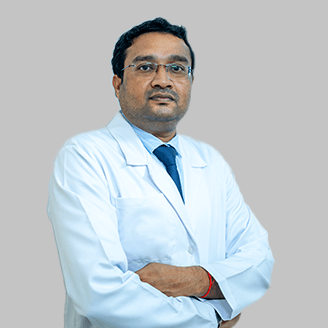
Dr. Saurabh Piparsania
MBBS, DNB, MNAMS, MBA
Paediatrics
View More -
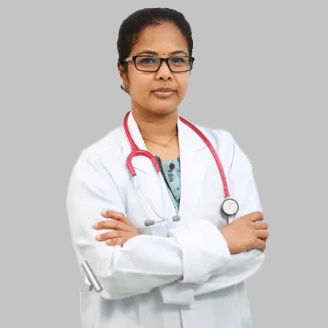
Dr. A R M Harika
MBBS, MD, Fellow in Neonatology
Neonatology, Paediatrics
View More -
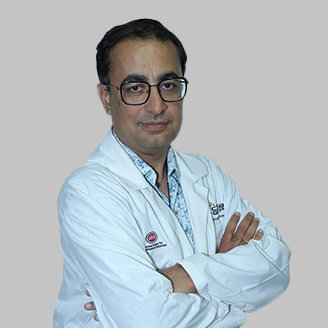
Dr. Abhay Jain
MBBS, DCH, DNB
Paediatrics
View More -

Dr. Ganta Rami Reddy
MBBS, MD (Paediatrics), Fellowship in Neonatology
Neonatology, Paediatrics
View More -

Dr. Kanhu Panda
MBBS (Gold medalist), MD (Pediatrics)
Paediatrics
View More -
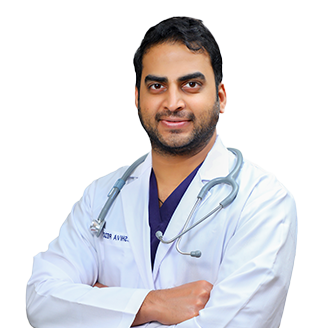
Dr. Kumbham Shiva Reddy
MBBS, MD (Pediatrics)
Paediatrics
View More -

Dr. Mamata Panda
MBBS, MD (Pediatrics)
Paediatrics
View More -

Dr. Mekarthi Abhinav
MBBS, DNB (Paediatrics), Fellowship in Neonatology
Paediatrics
View More -

Dr. Pawan Jain
MBBS, MD, FPCC, PGDEPI, EPIC Diploma
Paediatrics
View More -
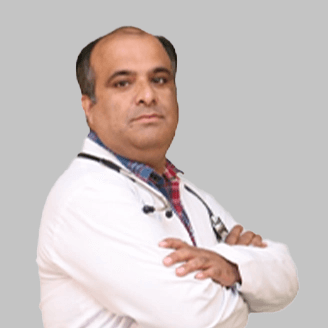
Dr. Prashant Thakur
MBBS, DNB, FNB (Paediatrics)
Paediatrics
View More -
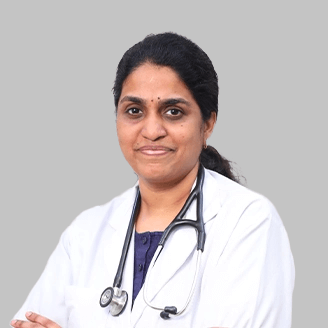
Dr. Priyanka Reddy Nagaradona
M.D, D.N.B Pediatrics
Paediatrics
View More -
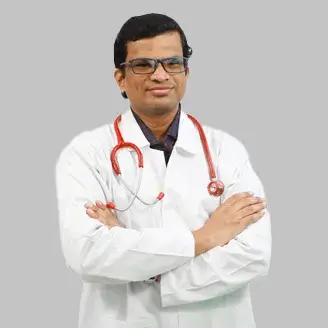
Dr. Sunil Patil
MBBS, DNB Paediatrics, IAP Fellowship In Neonatology
Neonatology, Paediatrics
View More -

Dr. Syed Ershad Mustafa
MBBS, DNB
Neonatology, Paediatrics
View More -
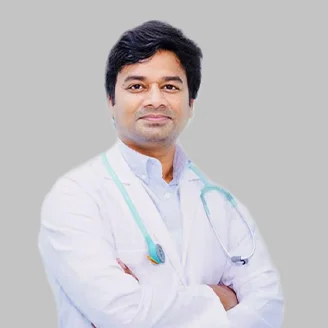
Dr. Vittal Kumar Kesireddy
MBBS, MD, Fellow in Neonatology
Neonatology, Paediatrics
View More -

Dr. Y. Gangadhara Rao
MBBS, DNB
Neonatology, Paediatrics
View More
Frequently Asked Questions
Still Have a Question?

